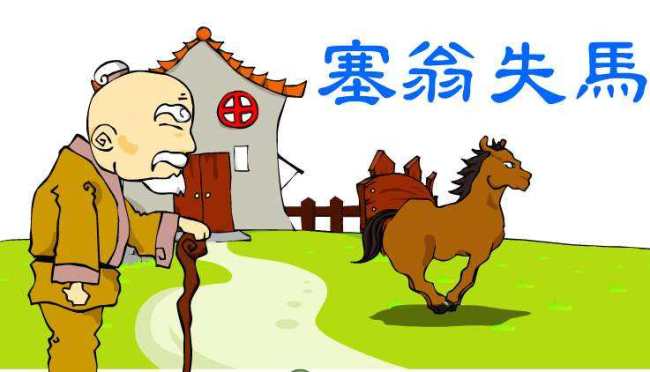成语故事:塞翁失马 Saiwong and His Lost Horse

成语故事:塞翁失马 Saiwong and His Lost Horse
塞翁失马
sāi wēng shī mǎ
Saiwong and his lost horse
Traditional Chinese life philosophy on nutrition draws heavily from Taoism theory. In an ancient China Taoism book, "Huainan Zi 淮南子", there is a famous story about "blessings" and "misfortune".
中国传统文化中的人生哲学很大一部分来自于道家思想。在本期的中国文化故事中,我们讲为您讲述来自于中国道家典籍《淮南子》的一个故事,“塞翁失马”。
“塞翁失马,焉知非福”
sāi wēng shī mǎ ,yān zhī fēi fú
Literal Meaning: An old man living at the frontier lost his horse.
Explanation: A loss may turn out to be a gain; a blessing in disguise
E.g
虽然你没有买到股票, 但是塞翁失马、焉知非福,也许过两天股市就跌了。
suī rán nǐ méi yǒu mǎi dào gǔ piào , dàn shì sāi wēng shī mǎ ,yān zhī fēi fú ,yě xǔ guò liǎng tiān gǔ shì jiù diē le 。
You failed to buy that stock, but it may be a blessing in disguise - the market prices might drop in a couple of days.
If you want to learn more about fun Chinese, you can find our program
Takeaway Chinese on NEWS Plus radio
5: 00-5:30
16:00-16:30
You can listen our program online:
https://chinaplus.cri.cn/nihao/takeaway-chinese/index.html

